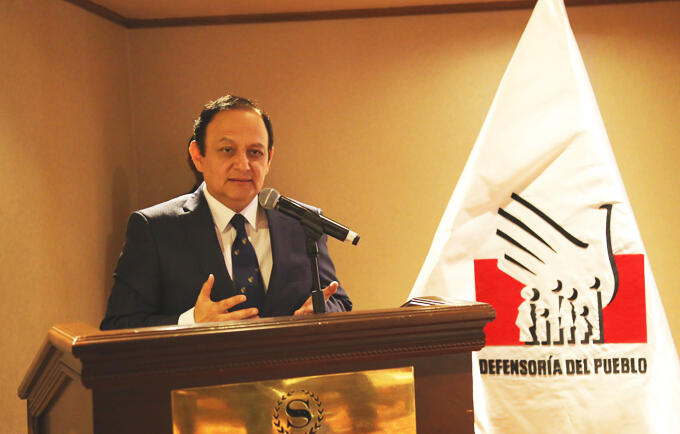HA NOI, 24 September 2014 - Viet Nam is currently in the period of golden population with record numbers of young people. According to the 2009 Population and Housing Census, young people aged 10 to 30 years constitute approximately 40 per cent of the population of Viet Nam. Young people have played a significant role in Viet Nam’s growth and they represent an increasingly important proportion of the labour force, both now and into the future. Therefore, investing in the education and health, including sexual and reproductive health, of adolescents and young people is of utmost importance to Viet Nam’s productivity and development in the future.
 These issues were actively discussed at the policy dialogue with nearly 100 young people studying and working in Ha Noi, organized on 24 September in Ha Noi by Ho Chi Minh Youth Union, the National Youth Committee and the United Nations Population Fund (UNFPA) in Viet Nam. The dialogue provides a platform for young people and policy makers to dialogue on SRH for young people and to make joint commitments towards improving young people’s access to SRH information and services.
These issues were actively discussed at the policy dialogue with nearly 100 young people studying and working in Ha Noi, organized on 24 September in Ha Noi by Ho Chi Minh Youth Union, the National Youth Committee and the United Nations Population Fund (UNFPA) in Viet Nam. The dialogue provides a platform for young people and policy makers to dialogue on SRH for young people and to make joint commitments towards improving young people’s access to SRH information and services.
Viet Nam has made impressive progress towards achieving the Millennium Development Goals (MDGs). Over the past decades, Viet Nam has invested a substantial amount of resources in the overall health and education of young people. But there remains large unfinished development agenda: evidence shows that young people still lack sufficient information and life skills related to reproductive health and sexuality. This leaves them vulnerable to high-risk behavior and ill-health outcomes, including unintended pregnancies, sexually transmitted infections (STIs), HIV, sexual abuse and gender-based violence.
The coverage of SRH services including family planning has been expanded and the quality of services has been improved. However, the SRH/Family Planning programmes are traditionally targeted for married couples only. No specific national programme addressing the growing needs of unmarried young people has yet been implemented. Sexuality education at schools remains limited. Certain groups, such as young migrants and ethnic minority youth, still have only limited access to SRH information and services.
The provision of SRH for young people is not diverse, friendly and convenient enough for young people to access. The unmet need for contraceptives among youth is still high. The quality of the SRH services provided by private providers is not strictly managed, inspected, monitored and regularly assessed. Life skills education and teaching of SRH in schools have not been given due attention. In addition, there are many socio-cultural reasons from family and society hindering young people from accessing to SRH services and sexuality education.
Addressing the dialogue, Mr. Nguyen Phi Long, Secretary of Ho Chi Minh Youth Union, Vice-Chairman of Viet Nam United Youth League stressed that: “SRH is not only concerns young people, but also the while society as it decides the quality of future workforce and country’s development and prosperity”.
The participation of young people in designing and analyzing the policies that affect them is one way to ensure that the policies and services are targeted the right way, and a very good tool to assess their effectiveness. Evidence shows that working in partnership with young people is an essential component of any successful SRH programme for young people. Therefore, this event was a great opportunity for young people to dialogue with policy makers on issues related to SRH including challenges they are facing in accessing to SRH information and services as well as to provide recommendations for the effective implementation of policies and programmes on SRH and rights for young people.

"In order to make youth participation an integral part of the coordination mechanism of youth affairs in Viet Nam, we have to do more than just let young people get their foot in the door. We need t o let the youth representatives in the room with us, and give them a seat at the table, when decisions are being made", said Mr. Arthur Erken, UNFPA Representative in Viet Nam."Full participation of young people requires building c apacities and developing the skills, and creating sustainable partnerships of which we all will benefit. Youth participation not only leads to better decisions and outcomes, but also promotes the well-being of young people and their commitment to being active developers of the future of Viet Nam", added Mr. Erken.
Young people should be recognized as central to development. We all have a role to play in ensuring that every young person’s potential is fulfilled. Working together, we can advance the rights, health and well-being including sexual and reproductive health and rights of current and future young generations.


